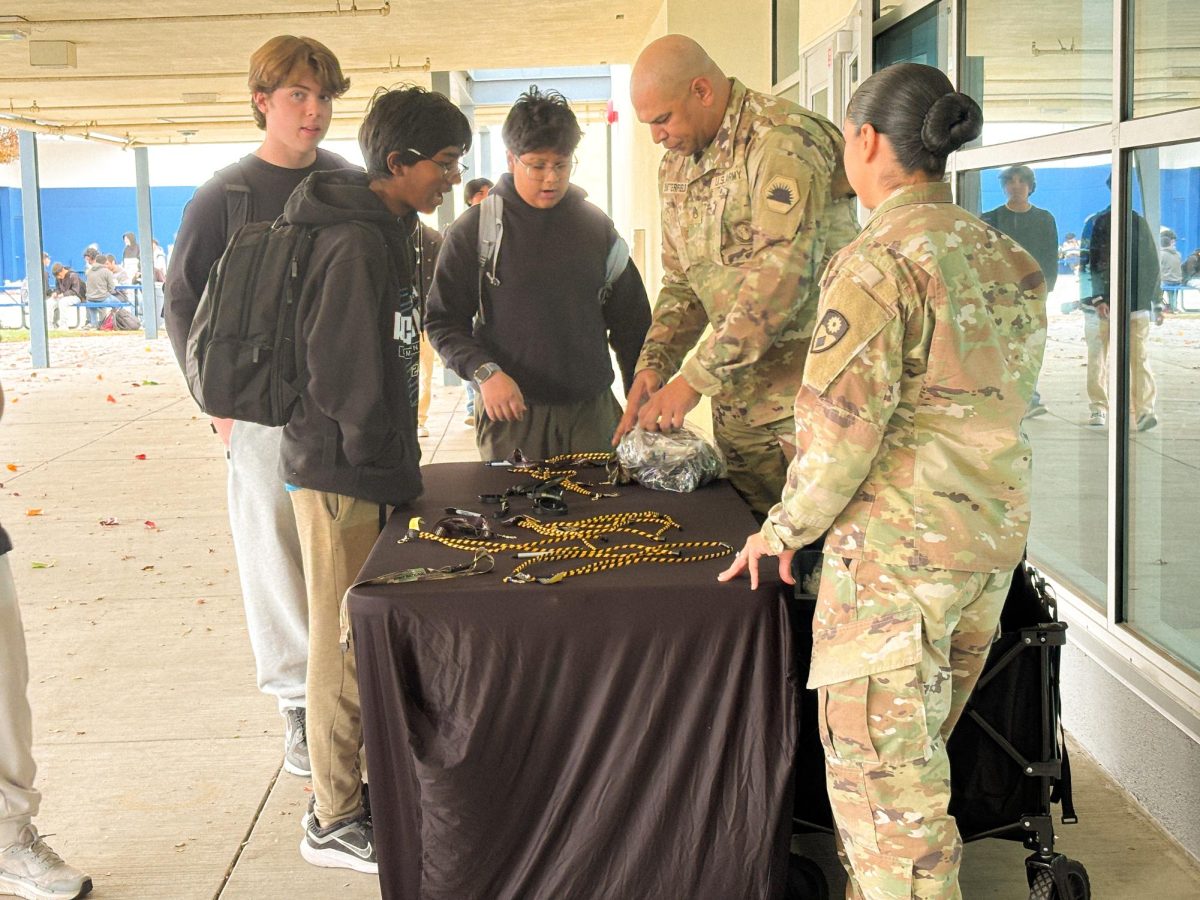Along with a variety of post-high school resources offered to students, military recruitment has maintained a constant presence on campus. Recruitment efforts provide insight on an alternative to the more traditional college and career paths.
Sergeant Jessie Velasco, a recruiter for the Marines at SCHS, finds that one thing that sets military recruiting apart from traditional job fairs is the deeper connection built with students. By sharing his experiences, Velasco is able to support students in building their plan to success.
“Each recruiter is different. As for me, I like to tell my personal stories, and I like to do a lot of class talks. It really helps reach out to the students, give them a better understanding about the Marines and help them see a better future for themselves,” Velasco said.
For junior Nolan Gallo, joining the military as a future path has frequently crossed his mind. After attending a military presentation during his freshman year, Gallo felt better equipped to consider the career.
“They (the recruiters) gave a lot of insight and information about it (the military), which allows myself and other people to be able to make an informed decision about it,” Gallo said.
Principal Gregory Shelby has noticed that students tend to react differently to recruiters because of their distinctive attire.
“The recruiters are ubiquitous because of their uniform. If someone’s coming into a class to talk about their job as an engineer, they wouldn’t stand out just based on their clothes,” Shelby said. “Someone in uniform definitely stands out.”
Even though the recruiters maintain a stable presence on campus, senior Grace Muresan, who wants to pursue a military career and higher education, feels that she has not received enough guidance. She believes the provided presentations and fairs have fallen short in offering the support she needs.
“I think the only issue with the way our school approaches them and what I’ve learned about the military through outside school activities is the fact that this school, they don’t educate you on how you can join the military and still get a complete college education,” Muresan said. “I’ve been to a ton of those talks about how to apply to UCs, how to apply to CSUs, how to apply to private schools. But it says literally nothing about the military.”
Similar to Muresan, Gallo believes students could potentially benefit from gaining more information about the military, especially about the various avenues available.
“I do think that they’re enough (the recruiters) to potentially get recruitment, but I don’t think they’re talked about enough or as much as other career options,” Gallo said. “There’s a wider range. If you only see them in the presentations, you’re only really seeing the Marines and not the military as a whole, all the branches.”
As the military continues to be among students’ fields of interest, according to Shelby, the school aims to provide and improve resources for their students to develop and find a career they enjoy.
“The more that we do to expose students to a wide variety of careers, the better we’re serving our students,” Shelby said. “I think that we can do more to provide options, and we also have our College of Career Resource Center to help out.”
Military recruitment is often portrayed as a challenging and high-pressure field, but Velasco sees it as a rewarding career, taking pride in the positive impact he can have on individuals’ lives.
“It’s one of the best fields I’ve ever had in this type of career,” Velasco said. “There’s a lot of hard times, but having somebody come in and thank me later on that I helped them is one of the best feelings in my entire life.”


